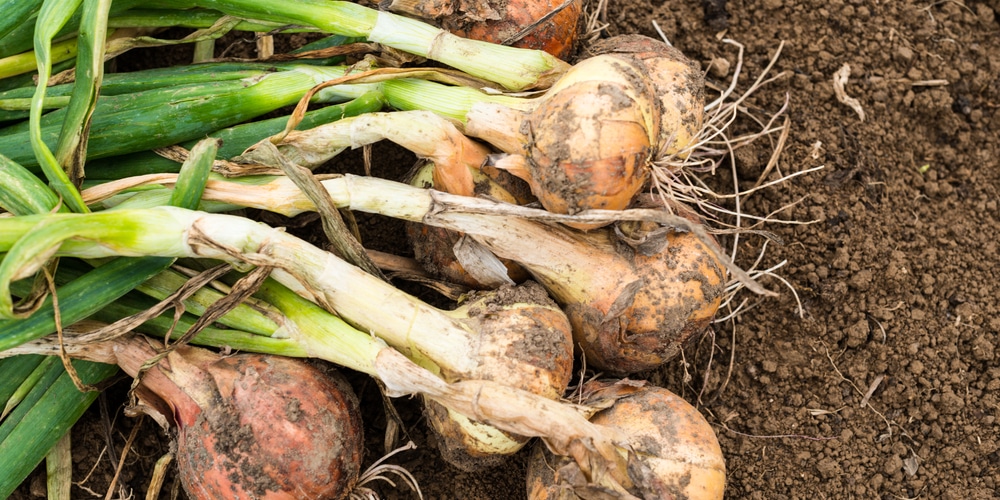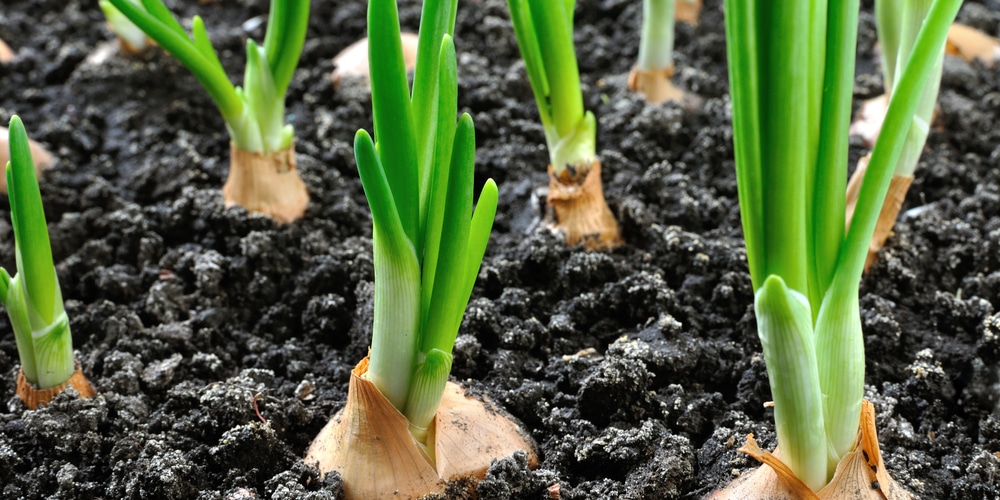Onion is used as a vegetable in cooking, and most people would consider the onion as a vegetable rather than a fruit or herb. However, as onion is used as a seasoning and grows in a slightly different way to most vegetables, there is some discussion about whether it’s a vegetable.
Onions are actually the dry bulbs of plants from the genus Allium and part of the Amaryllidaceae family. The genus contains many species, including onion, garlic, leeks, scallions, and shallots, used in recipes worldwide. Onion is not closely related to the common vegetables like potatoes, carrots, turnips, etc. This article will answer the question ‘is onion a vegetable?’
Is Onion a Vegetable?

It is said that onion is one of the most important vegetables in the world because it can be used in so many different dishes, not just as a side dish but also in sauces, soups, and stews. Onion originates from Asia and is now cultivated worldwide. They are generally used for flavoring rather than for the nutritional content, although it contains some vitamins and minerals.
Onion can be added to a large variety of dishes and served cooked, fried, or raw. The whole onion plant is edible, including the long green leaves that are usually discarded before cooking. Most people think onions are vegetables. However, due to the way that onions grow, botanically, they are not a vegetable but a separate plant type.
Herbaceous plants
The definition of a vegetable is that it’s a herbaceous plant that is safe for ingestion by animals and humans. Most vegetables also provide nutritional benefits. Herbaceous plants have soft stems, and either the flower, stem, root, seeds, or the foliage are edible. By this definition, onion is a vegetable.
Are onions bulbs?

Onions are botanically considered bulbous plants, which means that they grow underground from a bulb, where their energy and nutrients are stored. Onions are complex plants that have characteristics of both vegetables and bulbs.
However, it’s not appropriate to call an onion a bulb as this would classify it with other bulbs such as tulips, snowdrops, and daffodils, which are toxic to humans and animals if ingested. For this reason, people don’t usually refer to onion as a bulb, and onions have been classed as a vegetable.
Is onion a fruit?
The definition of a fruit is “the sweet edible part of a plant that develops from the ovary of a flower.” Onions definitely aren’t fruits, as fruits grow from the seeds of flowers. After plants have bloomed, the flowers become fruits. This is the case with apples, plums, and even tomatoes. Onions have a completely different way of growing, so they aren’t fruits.
Onion facts and information

The onion is a bulbous plant that grows from a small, flattened, white seed to produce a large, edible bulb. The leaves and stalk of the onion are also edible. The onion is a perennial plant, which means it can be grown year after year. However, most gardeners grow onions as annuals and harvest them every year, growing a new crop the following season.
The onion plant grows from a small bulb underground to a large (up to 2 feet tall) herb with leaves and flowers. The edible part of the onion is the bulb, although the leaves are also sometimes eaten, depending on the variety. Onion can be white, brown, yellow, or red, and there are many different types available, including Seaton, Hired, and Snowball.
Onions are available all year round from the supermarket, but the best season for onions is in fall when there’s a fresh harvest. Onion bulbs can be eaten raw or cooked; they can also be pickled or dried for use throughout the year. Onion is a popular ingredient in many dishes worldwide, including curries, pizzas, stews, and salads.
Nutritional information
Onions are most commonly used in cooking because they add a strong flavor to recipes and mix well with other ingredients. The onion has such an intense flavor that only small amounts need to be added to recipes for flavors without becoming overpowering.
Onion is a low-calorie food, providing just 20 calories per 100g. It is also a source of vitamin C and B6, thiamin, potassium, and dietary fiber. Onion also contains small amounts of calcium, magnesium, and zinc.
The carbohydrates found in onions are actually good for you and offer several health benefits, such as improved cardiovascular health. A fiber called pectin is also found in onions which can help lower cholesterol and reduce the risk of heart disease.
Are onions toxic to pets?
While onions are good for people, they are toxic to dogs, cats, and other animals, even in small amounts. Avoid giving your pet any food that contains onion or garlic, as these bulbs can prove to be fatal. Consult your vet if your pet has ingested even a small amount of onion.
How to grow onions?
There are many methods of growing onions in order to cultivate these vegetables. Some common ones are planting sets, dividing mature plants, or sowing seeds directly into the soil.
Onions should be planted during cool weather as they require warm days and colder nights to grow. You can either plant onions in the early spring or the fall, depending on the climate where you live. Most gardeners will plant in the spring and harvest their onions in the early to late fall before the date of the first frost.
Conclusion
Onion is considered a vegetable but is really just a bulb.
Onion is definitely used as a vegetable in cooking, and it is one of the most popular ingredients in recipes from around the world. However, botanically onion is not considered to be a vegetable but is actually the bulb of the plant.
Onions are herbaceous plants that grow underground in a bulb. The soft stems of the plant, the bulb, and the leaves are all edible. Onion bulbs contain both nutritional benefits, including vitamins and minerals, but onion is usually used for its taste rather than its health benefits. Due to this reason, many people would consider onion as a vegetable.